
Viper Kart lands on facebook and instagram
The product line from OTK Kart Group dedicated to the rental kart world expands its online presence with the launch o...
Contact our sales department

To pay back the purchase and maintenance costs of your rental karts for as long as possible, in addition to choosing a reliable supplier offering top-quality products, you need to follow a strict inspection schedule (with a well-defined timeframe) on your fleet so that you can always keep an eye on the wear and tear of each kart component and protect yourself from unpleasant (and expensive) surprises. What to watch for? How often? And how to do it? We explain it in this article.
All rental kart track operators know very well how, at the end of the year, extraordinary maintenance of their fleet can place a significant burden on the economic budget of their business. Moreover, these are 'non-returnable' sums that do not represent a long-term investment, but merely a 'patch' for a rental kart fleet that is wearing out unexpectedly and only due to mismanagement. While there are inconveniences that are beyond the control of every kart track owner, such as breakdowns due to misconduct of the vehicles on the track by the drivers, many of these expenses can be avoided, simply by leading a periodic check-up of one's fleet. This way, you reduce malfunctions due to the deterioration of kart components that are not promptly replaced; you prolong (by a lot) the life of your fleet of rental karts and, finally, you... save money, with the consequent chance of foreseeing - year after year - increasingly large sums intended for the growth of your business. What are the periodic checks that you absolutely must not miss on your fleet? Here they are.
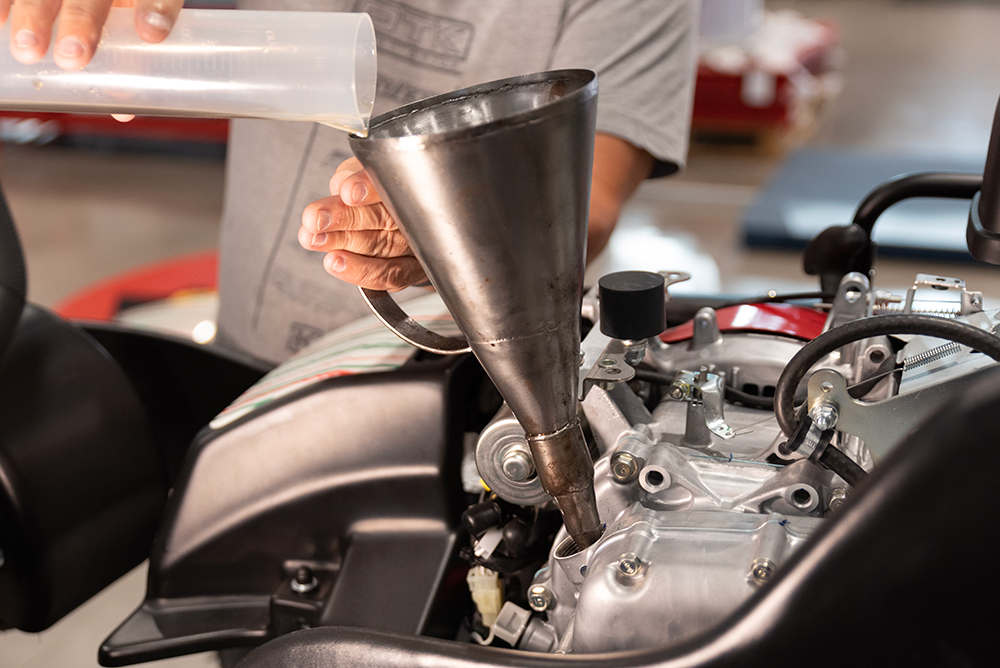
Among the periodic checks to be performed on one's fleet of rental karts, some must necessarily take place daily. The main checks to be carried out daily concern:
Essentially, these are all those components that are generally subjected to the greatest stress in a kart and which, if not properly monitored, can break without warning (or fail to work optimally, such as brake pads), causing potential damage to both drivers and kart itself. Focusing, for example, on the correct tensioning of the chain, this is a check that not only allows one to protect oneself from unexpected breakage of this element but also allows one to maximise the life of the kart's other transmission components: the engine sprocket and the crown wheel on the kart axle.
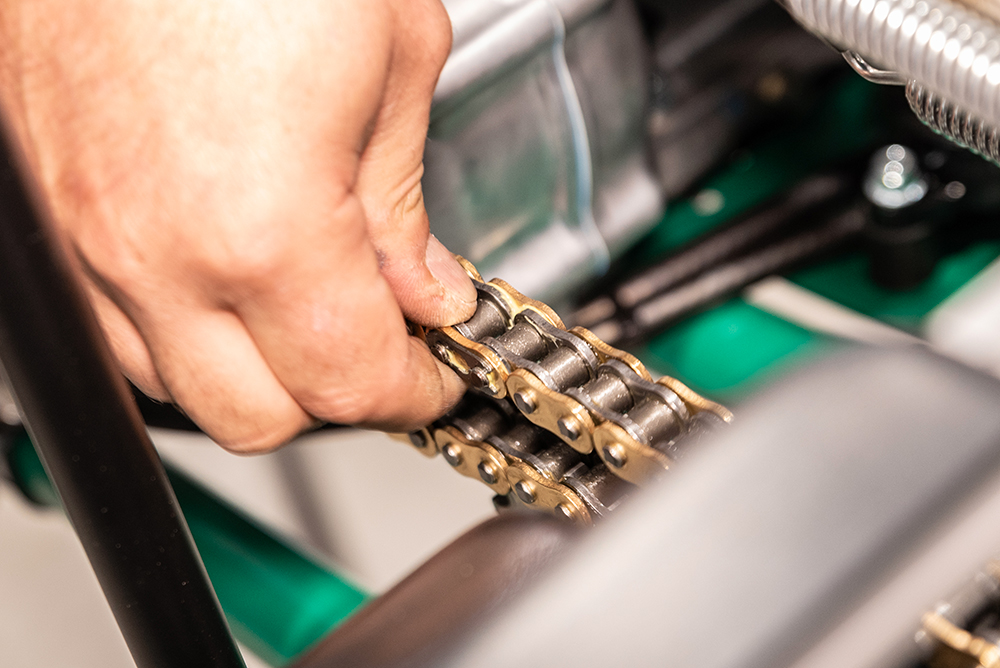
Sign up for our newsletter and you will receive useful information and tips for opening or running your own rental kart trackSubscribe to the newsletter!
In addition, there are long-term checks, necessary to assess the state of wear and tear of those components designed to resist the pressures for a long time, but which regularly require precise maintenance to optimise their operation. We talk for example, of:
With regard to the first two parts, it is essential to keep an eye on their degree of wear and to lubricate the components correctly. Bearings have the task of considerably reducing friction, wear and the heat generated between the elements in contact. Thus, bearings that do not work properly, in addition to causing faster deterioration of various kart elements (such as the axle), can be a brake on the correct delivery of engine power thus resulting in higher fuel consumption and, in the worst cases, malfunction of the engines themselves.
.jpg)
There are, finally, maintenance tasks to be carried out on the kart less frequently, but certainly no less important being crucial in terms of driver and vehicle safety. An example? The replacement of the brake fluid. This is, in fact, the element that puts pressure on the brake callipers and their pistons, allowing the pads to come into contact with the discs. Although daily checks can show a correct level in the system, the fluid over time, loses its fundamental properties, causing loss of braking efficiency and thus endangering the safety of kart track drivers and the longevity of the vehicle. Therefore, taking care to replace the fluid at a precise time interval will protect you from unpleasant inconveniences and unwanted extraordinary maintenance costs.
Important: Each brake system is designed to work with a specific brake fluid. Viper Kart and E-Viper Kart rental karts require DOT 4 type fluid.
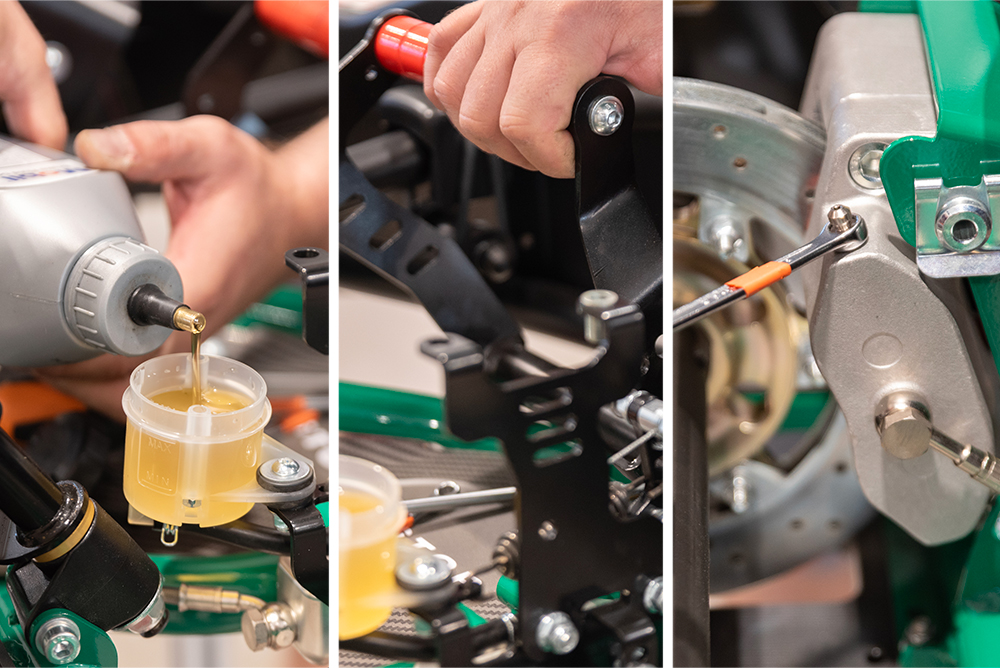
When it comes to the check-up and routine maintenance of a go-kart, it is constancy and experience that make the difference. This is why it is important to invest in your own (or your team's) training. Alternatively, you can select rental kart manufacturers who, in addition to the product, provide their customers with classes to deepen kart knowledge and their perfect long-term management (a service that OTK Kart Group provides to all its customers). Some small suggestions can greatly facilitate the management of one's fleet. One of these is to install an hour counter on each kart: an electronic device that can accurately record the time each kart has been used.

The product line from OTK Kart Group dedicated to the rental kart world expands its online presence with the launch o...
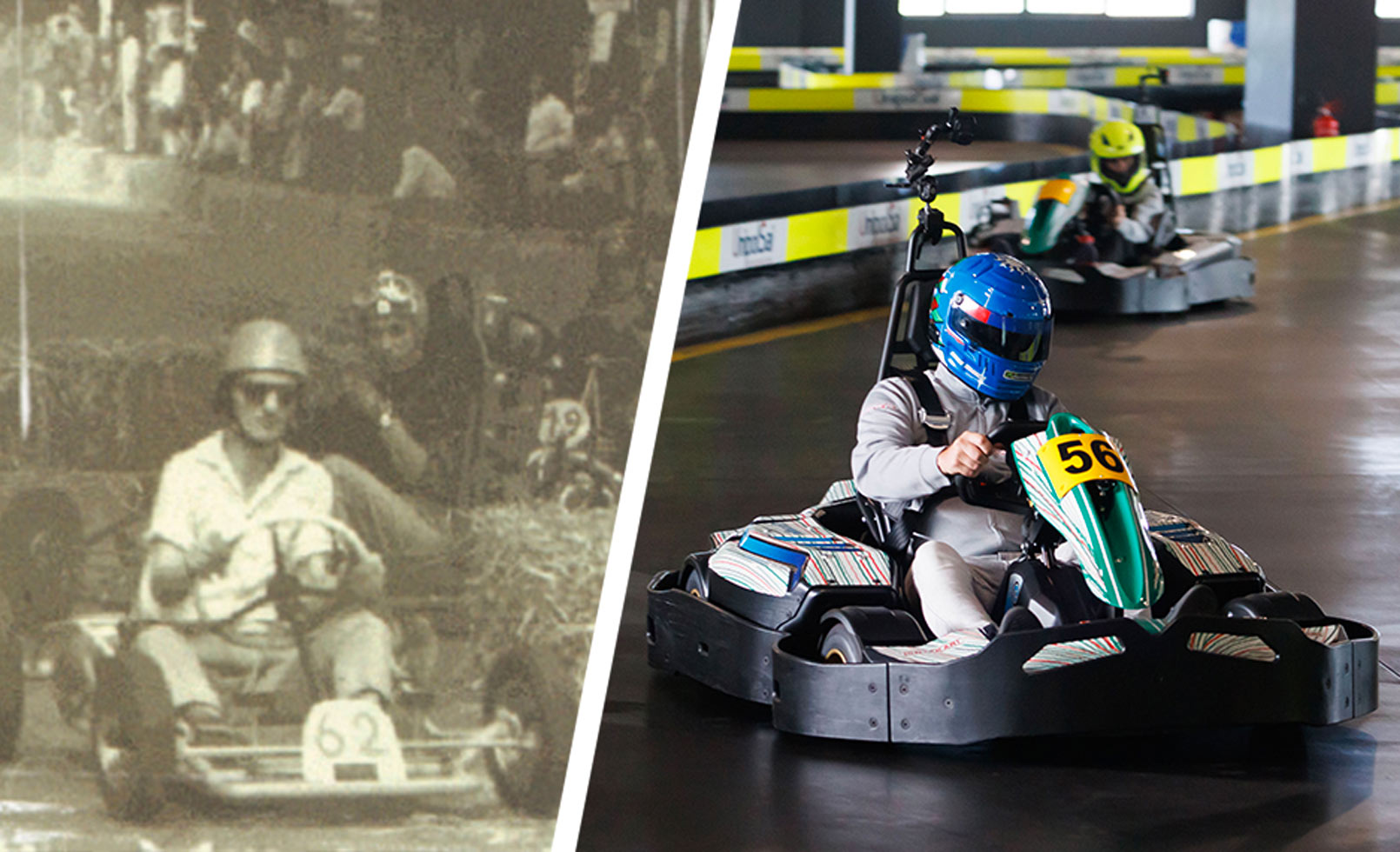
Journey through the history of karting (and OTK Kart Group): who invented go-karting? Why is it called go-kar...
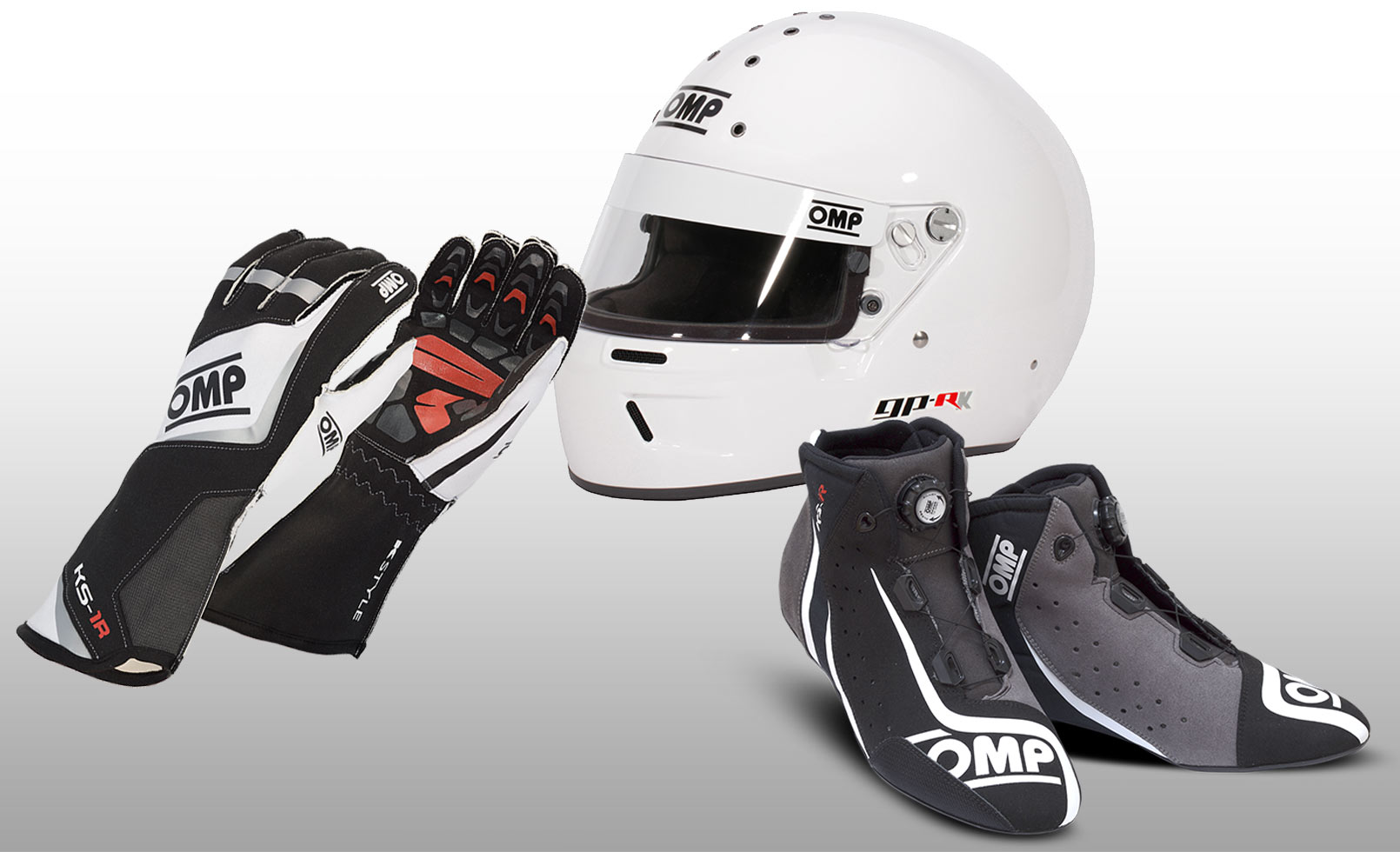
Is there any difference in clothing between indoor and outdoor karting? Is it necessary to wear a helmet to go kartin...

If you are thinking of opening a go-kart rental business, no doubt one of the first questions you ask yourself is: is...

When discussing go-karting, it’s easy—especially for those with less experience—to assume that all ...
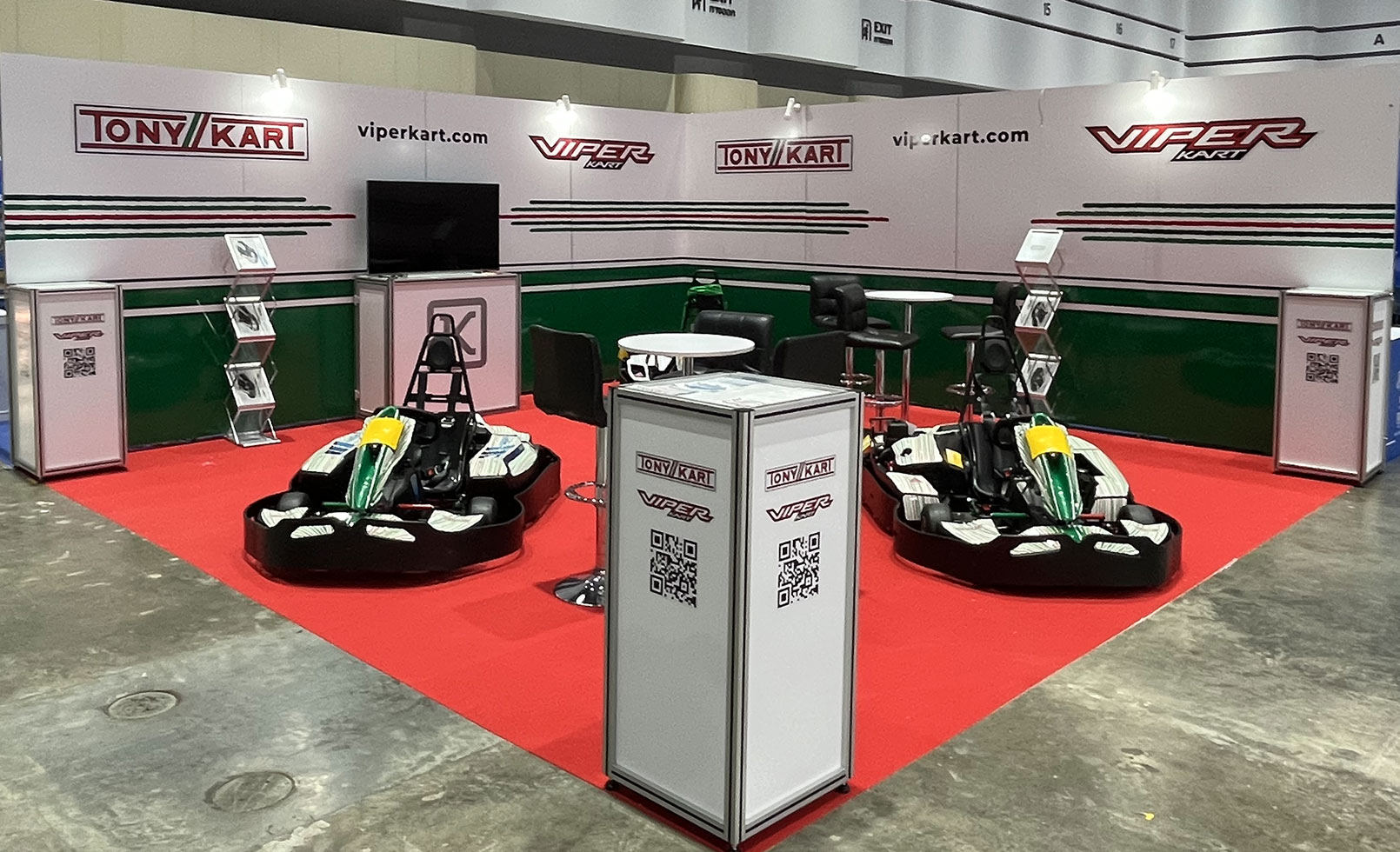
After attending IAAPA Expo Europe '23 and IAAPA Expo '23 events, Viper Kart lands at IAAPA Expo Asia. The exh...

The OTK Kart Group participated in the IAAPA Expo, the premier event for the entertainment industry in the USA, which...

In a rental karting business, the fleet of vehicles represents the main asset allowing business growth and customer l...

To pay back the purchase and maintenance costs of your rental karts for as long as possible, in addition to choosing ...

The Italian group - with over 35 years of experience in karting, 4 offices located in 3 continents and commercially a...